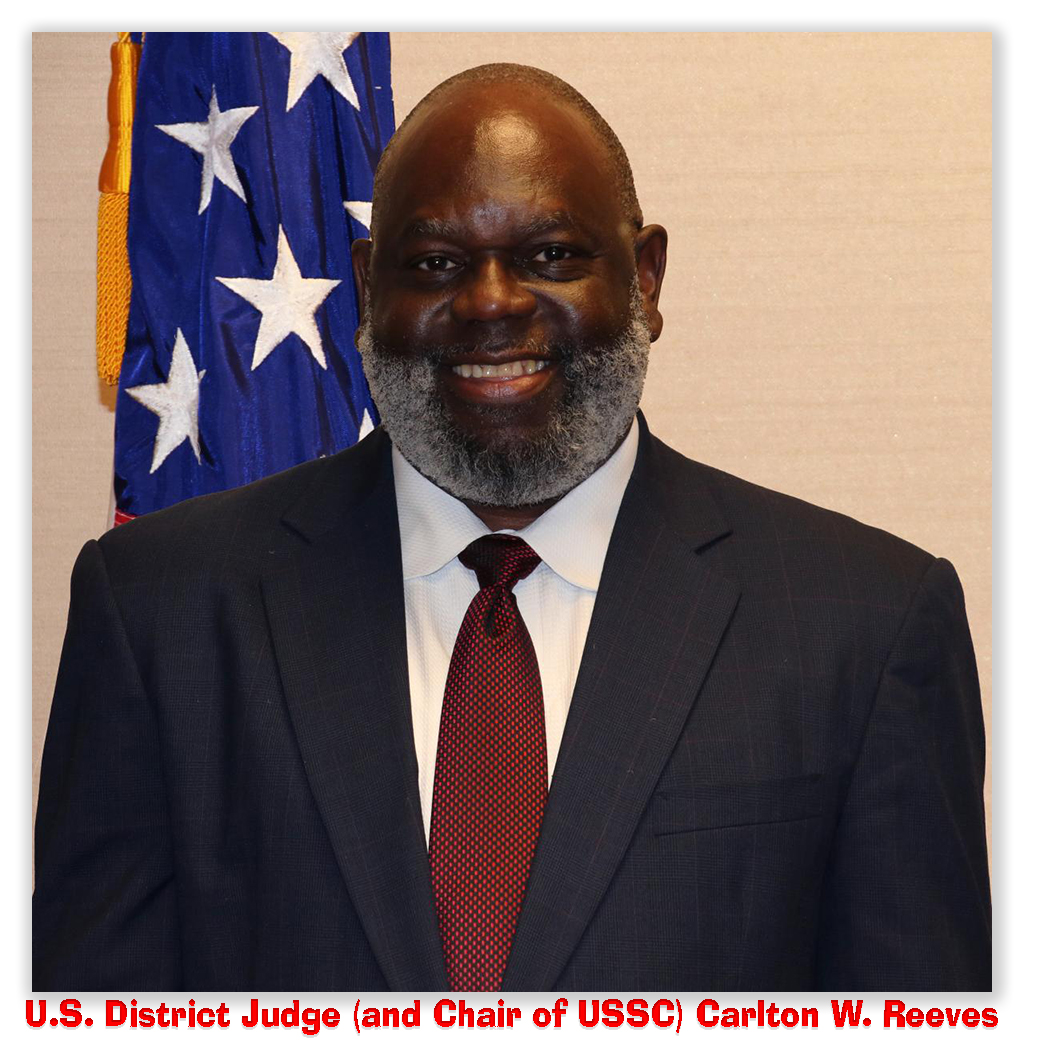We post news and comment on federal criminal justice issues, focused primarily on trial and post-conviction matters, legislative initiatives, and sentencing issues.

DISTRICT COURT SAYS § 922(g)(1) UNCONSTITUTIONAL
Deep in the Old South, federal judge Car lton W. Reeves holds court. He is black, the first in his family to attend college, an Obama appointee with a resume of work for the ACLU. He wrote the district court decision that was ultimately reversed by the Supreme Court in Dobbs v Jackson Women’s Health Organization (the decision that struck down Roe v. Wade), and he has repeatedly blocked Mississippi laws widely considered to be discriminatory to LGBT persons.
lton W. Reeves holds court. He is black, the first in his family to attend college, an Obama appointee with a resume of work for the ACLU. He wrote the district court decision that was ultimately reversed by the Supreme Court in Dobbs v Jackson Women’s Health Organization (the decision that struck down Roe v. Wade), and he has repeatedly blocked Mississippi laws widely considered to be discriminatory to LGBT persons.
In short, he’s a guy conventional wisdom figures to be in line with all that President Biden and the progressive wing of the Democratic Party hold dear, so much so that Biden last year made him the new chairman of the Sentencing Commission.
So you would expect Judge Reeves to be all in on gun control in general and the value of laws prohibiting felons from possessing guns in particular. You would be wrong.
Last week, Judge Reeves ruled in a 75-page opinion that the felon-in-possession statute violates the 2nd Amendment.
The government was prosecuting Jessie Bullock, who as a 31-year-old hothead had gotten into a fatal bar fight. He did time for manslaughter. Now, the 59-year-old Jessie was caught in possession of a .22 level-action rifle and a .22 revolver, hardly the stuff of gang wars or bank robberies. No matter. The government charged him with being a felon in possession.
 Jessie’s public defender moved to dismiss the charge as unconstitutional in the wake of last year’s Supreme Court decision in New York State Rifle & Pistol Ass’n, Inc v. Bruen.
Jessie’s public defender moved to dismiss the charge as unconstitutional in the wake of last year’s Supreme Court decision in New York State Rifle & Pistol Ass’n, Inc v. Bruen.
Judge Reeves, who wanted the parties to agree that an expert historian be appointed to give a report on the history of laws prohibiting felons from having guns, lamented the lack of historical evidence supporting the cases the government cited in support of its position. “It is unsurprising that the government relies on jurisprudence filled with such methodological flaws,” he observed tartly, because “[t]he same errors define the Supreme Court’s own Second Amendment jurisprudence…”
Relying on the 3rd Circuit’s en banc Range decision of three weeks ago, Judge Reeves held that “the government[] does not identify a “well‐established and representative historical analogue” from either era supporting the categorical disarmament of tens of millions of Americans who seek to keep firearms in their home for self‐defense.
 Although he ruled against the government, Judge Reeves criticized the judicial philosophy of “originalism,” underlying Bruen that holds that the Constitution should be interpreted as it was understood when it was written. For much of American history, he said, interpretation of the Constitution has changed to incorporate modern values, citing the 2015 Obergefell ruling legalizing same-sex marriage.
Although he ruled against the government, Judge Reeves criticized the judicial philosophy of “originalism,” underlying Bruen that holds that the Constitution should be interpreted as it was understood when it was written. For much of American history, he said, interpretation of the Constitution has changed to incorporate modern values, citing the 2015 Obergefell ruling legalizing same-sex marriage.
“The next generation will have its own conceptions of liberty,” the Judge wrote. “It will interpret the principles of the Constitution, enduring as they are, differently than this generation has interpreted them. Change is unstoppable.”
United States v. Bullock, Case No 3:18-CR-165, 2023 U.S. Dist. LEXIS 112397 (S.D.Miss., June 28, 2023)
New York State Rifle & Pistol Ass’n, Inc. v. Bruen, 597 U.S. —, 142 S.Ct. 2111, 213 Led 2d 387 (2022)
Reuters, Mississippi judge, dismissing gun charge, assails Supreme Court gun ruling (June 29, 2023)
– Thomas L. Root

